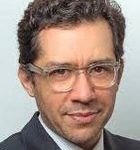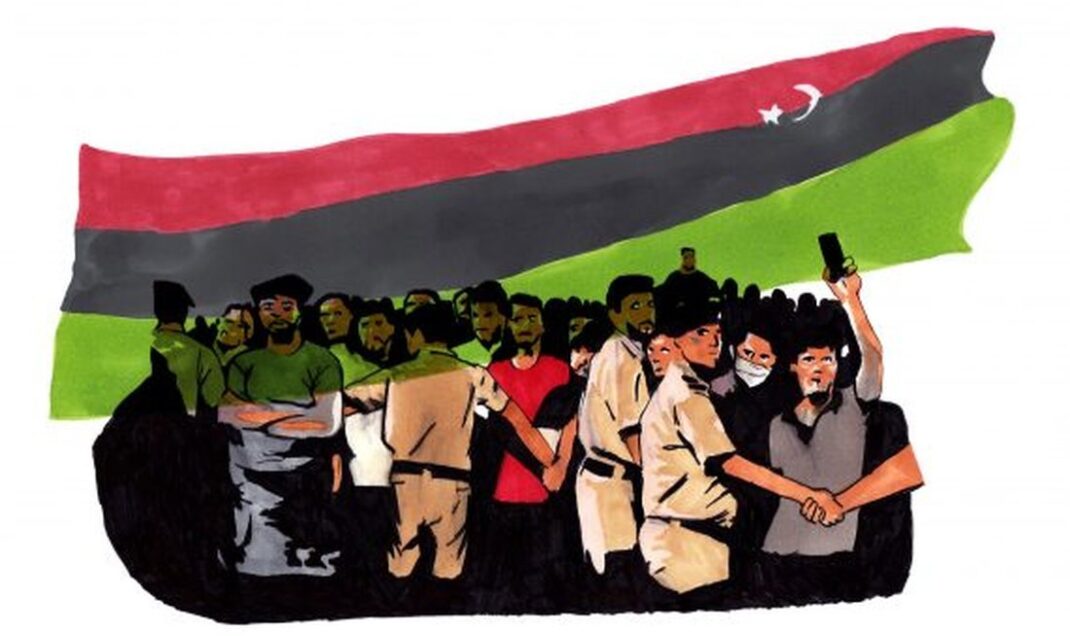Jalel Herchaoui

Libya’s Long Road to 2021
1.1 Why Elections Matter in Libya
In August 2021, Russian Foreign Minister Sergey Lavrov declared that the world has “learned the lessons” from Libya’s example: “Attempts to impose one’s value system […] are highly explosive,” he went on, echoing previous remarks from 2021 where he asserted that U.S. attempts to establish “democracy” in Libya transformed the country into “a black hole.”
That the same Lavrov previously vowed that Russia would “facilitate” the organization of “inclusive” elections in Libya “in every way possible” only vested his comments with a sense of tragic irony.
Moscow and its fellow travelers demonstrate a tendency toward portraying U.N. efforts to help organize elections in Libya as an initiative imposed by Washington on Libyans. Cast in this frame, the project of Libyan democracy dissolves into a foreign design — one animated by a U.S. drive to impose democracy and liberal principles around the globe as part of a hegemonic strategy.
Such a rendering is both inaccurate and, in many ways, offensive. It obscures the fact that the overwhelming majority of Libyan citizens are anxious to see the country exit its long-standing crisis and view elections as a desirable means of toppling the current ruling elite responsible for that crisis.
Democracy’s prospects in Libya are vital for a domestic population entitled to a political life far better than the one they have suffered the past decade. Not only that, they are also vital due to their implications for security. Without fair and free elections, the establishment of institutions with the capacity to more efficiently, transparently manage the country’s wealth will remain elusive.
This will allow the current ruling elite to persist in deepening their personalized stranglehold over the economy through their control over the interim executives and security institutions. Such an eventuality will only aggravate the legitimacy deficit already compromising Libyan institutions, and heighten the probability of a return to civil war. No temporary agreement between incumbent power brokers can suffice to slow down the ongoing decay. The reinvigoration of the electoral process is necessary.
1.2 The Years Leading Up to 2014’s Electoral Crisis
In 2011, an array of rebel factions rose up and toppled Libyan autocrat Muammar Qadhafi with the assistance of a U.S.-led NATO intervention with a handful of Arab nations participating, Qatar and the UAE in particular.
Legislative elections were held in July 2012 on the basis of the provisional constitutional declaration of August 20114. The vote, which produced a parliament called the General National Congress (GNC), was a technical success, but a premature one, given the proliferation of armed groups after Qadhafi’s fall.
The factions that had been strengthened the most by the 2011 war — namely, the proponents of political Islam and those in favor of the most uncompromising break with the old Qadhafi social order — performed surprisingly poorly. Another political force — a liberal anti-Islamist caucus known as the National Front Alliance — won more seats in the freshly elected legislature, and thus came close to earning a full-blown popular mandate.
But the National Front Alliance was disjointed, severely lacking in organizational skills compared to their more unpopular rivals. Such pronounced imbalances helped render the GNC riven with factionalism.
High from the start, tensions between the two main voting blocs — the first a coalition of hard-line anti-Qadhafists and political Islamists, the second the National Front Alliance — only rose further over the months, preventing the GNC from achieving any constructive legislation, let alone any progress on the constitutional question.
Parliamentary dysfunction predictably opened the door to alternative expressions of political voice. With state institutions too weak to project any countervailing force, political entrepreneurs of different stripes shrugged off their own lack of popular legitimacy and opted to pursue their agendas through collaboration with extant armed groups, militarizing Libya’s post-Qadhafi politics in the process.
In May 2013, Libya became even more fractured when a small group of intransigent legislators hailing from each of the main parliamentary blocs coalesced to pass a law banning anyone who had served an official function during the Qadhafi era from public-sector employment.
The legislation threatened the welfare of thousands of households. Adding to national disunity was the profound asymmetry between the eastern and western provinces in how the 2011 war had been experienced: Cyrenaica rejected Qadhafi in a matter of days whereas Tripolitania fought for months.
In the east, the forces that viewed themselves as the new elite were soon challenged by a majority of the populace. Discontent rose in Benghazi, Cyrenaica’s largest city, as a result of insecurity, too.
Much of the population held the revolutionary Islamist groups — then in control of the city’s military, political, and economic affairs — responsible for the worsening situation, including the assassination of dozens of military officers and functionaries linked to the Qadhafi regime.
The climate of fear and lawless retribution prevailing in Benghazi made career military officials and local militias throughout Libya’s northeast ripe for the appeal of one who could promise a new war for stability.
Such an appeal was made by Khalifa Haftar, a former Qadhafi-aligned military officer whom a 1987 defeat in Chad turned into a regime opponent with ambitions to rule Libya. In May 2014, Haftar and his allies launched an offensive against their political opponents in both Benghazi and Tripoli, respectively.
Although it featured a legitimate counter-terrorism component, Haftar’s offensive — backed mainly by Egypt in its initial phases — was in large part driven by a thirst for power.
The deterioration of security caused by the May 2014 offensives contributed to the low participation rate in the legislative elections of June 2014. Barely a fifth of potential voters cast a ballot — considerably fewer than in July 2012’s legislative elections10. Some representatives were elected with less than 1,000 votes.
Such was the case for Aqila Saleh, a lawyer who became the representative for the eastern-Libyan district of Qubba and went on to become the Speaker of the freshly formed HoR (HoR). Also, in sparsely populated electoral districts, the geographical distribution of electoral facilities gave undue advantage to some communities or tribes.
This sort of operational distortions combined with the rates of abstentionism witnessed in June 2014’s legislative elections to give a rather clear indication of the legitimacy crisis befalling Libya’s transitional politics.
Weeks after the vote, a coalition of hardline revolutionaries and political Islamists conducted a major armed offensive, which succeeded in expelling Haftar’s allies from the capital, Tripoli. Barring numerous local fractures and territorial exceptions, a rough east-west divide ensued.
Haftar’s main forces tended to concentrate in the east while his top rivals, in the west. The geographic breakdown was then compounded by institutional partition: Two separate legislatures began convening in August 2014.
The first was a portion of the newly-elected House of Representatives (HoR), which set up its operations in Tobruk, near Egypt, although some in-coming parliamentarians boycotted it.
The second legislature was a portion of the former GNC made up of members refusing to relinquish power despite their mandate having expired six months earlier. Complicating matters further, each legislature soon appointed its own executive.
Beginning in the autumn of 2014, the UAE, France, and Russia joined Egypt in militarily backing Haftar. In pursuit of his political goals, the commander would carry on his military campaign in various areas of Libya for six years almost without interruption.
***
Jalel Harchaoui is a political scientist specialising in North Africa, with a specific focus on Libya. He worked on the same topics previously at The Global Initiative Against Transnational Organised Crime, a Geneva-based NGO, as well as at the Clingendael Institute, based in The Hague. His research has concentrated on Libya’s security landscape and political economy. A frequent commentator on Libya and Algeria in the international press, he has published in Foreign Affairs, Lawfare, Politique Étrangère, Foreign Policy, and Small Arms Survey. An engineer by trade, Jalel holds a master’s degree in Geopolitics from Paris 8 University.
____________





